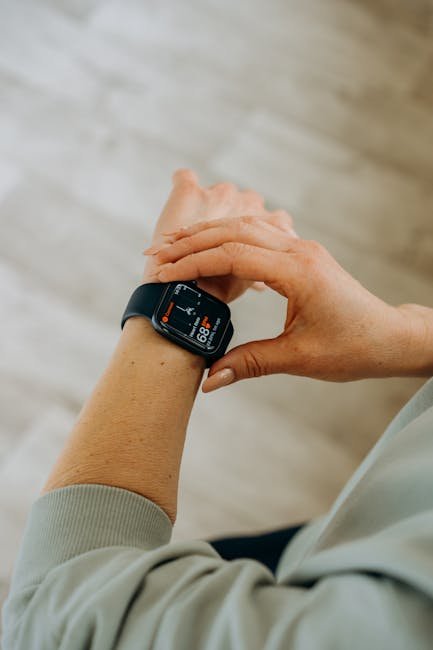Boost Your Health with Wearable Devices: Real-Time Tracking Guide
Wearable devices have revolutionized the way we monitor our health and fitness, providing real-time data and insights to help us make informed decisions about our well-being. Whether you are looking to track your steps, monitor your heart rate, improve your sleep quality, or simply stay motivated to reach your health goals, wearable devices offer a convenient and effective solution. In this guide, we will explore the benefits of using wearable devices for health tracking and provide tips on how to make the most of this technology.
The Rise of Wearable Health Technology
In recent years, wearable devices have gained popularity for their ability to track various health metrics and provide valuable insights into our daily activities. From smartwatches and fitness trackers to smart clothing and wearable sensors, there is a wide range of options available to suit different preferences and needs.
Benefits of Wearable Health Devices
There are several benefits to using wearable devices for health tracking:
1. Real-Time Monitoring
Wearable devices offer the convenience of real-time monitoring, allowing you to track your health metrics throughout the day. Whether you are exercising, sleeping, or simply going about your daily activities, wearable devices provide continuous data to help you understand how your body is responding to different stimuli.
2. Motivation and Accountability
Wearable devices can help keep you motivated and accountable towards your health goals. By setting targets and receiving notifications and reminders, you are more likely to stay on track and make healthier choices throughout the day.
3. Personalized Insights
Many wearable devices use advanced algorithms to analyze your data and provide personalized insights and recommendations. From optimizing your workout routine to improving your sleep quality, these insights can help you make meaningful changes to your lifestyle.

Choosing the Right Wearable Device
When selecting a wearable device for health tracking, it is important to consider your specific needs and preferences. Here are some factors to keep in mind:
1. Health Metrics
Consider the health metrics you are most interested in tracking, such as steps taken, calories burned, heart rate, sleep quality, and stress levels. Choose a device that offers the features you need to monitor these metrics accurately.
2. Design and Comfort
Look for a wearable device that is comfortable to wear and suits your personal style. Whether you prefer a sleek smartwatch or a discreet fitness tracker, choose a design that you will be happy to wear every day.
3. Battery Life
Consider the battery life of the wearable device, especially if you plan to wear it continuously for extended periods. A longer battery life means less frequent charging and uninterrupted health tracking.
4. Compatibility
Make sure the wearable device is compatible with your smartphone or other devices to sync and access your health data easily. Check if the device is compatible with your operating system and any specific apps you may want to use.

Making the Most of Your Wearable Device
Once you have chosen the right wearable device for your health tracking needs, here are some tips to help you make the most of this technology:
1. Set Realistic Goals
Define clear and achievable health goals that are tailored to your lifestyle and fitness level. Set targets for steps, exercise minutes, sleep duration, or other health metrics to track your progress and stay motivated.
2. Track Your Progress
Regularly review your health data and track your progress towards your goals. Use the insights provided by the wearable device to identify patterns, set new targets, and make adjustments to your routine for better health outcomes.
3. Stay Active
Use the activity tracking features of the wearable device to stay active throughout the day. Set reminders to move, take the stairs instead of the elevator, or try new activities to increase your daily step count and improve your overall fitness.
4. Monitor Your Health Metrics
Pay attention to your health metrics, such as heart rate, sleep quality, and stress levels, to gain a better understanding of your overall well-being. Use the data provided by the wearable device to make informed decisions about your lifestyle and health habits.
Conclusion
Wearable devices offer a valuable tool for health tracking and can help you achieve your wellness goals by providing real-time data, motivation, and personalized insights. By choosing the right device and incorporating it into your daily routine, you can boost your health and well-being in a convenient and effective way. Embrace the power of wearable technology to take control of your health and enjoy a healthier lifestyle.

